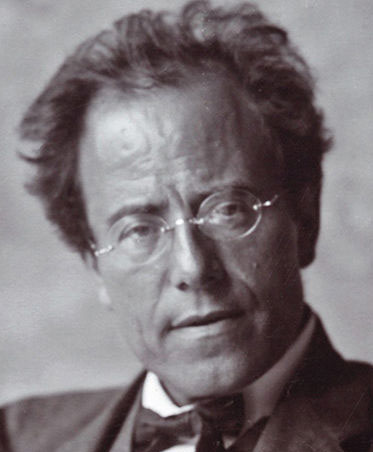
A survey of the first movement in 55 accessible versions among around 100 existing, thus very short comments for this movement.
(4 last movements)
Arnold Schoenberg hearing the work’s premiere on Sept. 19, 1908: “As for which movement I liked best: All of them! From minute to minute I felt happier and warmer. And it did not let go of me for a single moment. In the mood right to the end. And everything struck me as pellucid. Finally, at the first hearing I perceived so many formal subtleties, while always able to follow a main line. It was an extraordinarily great treat.”
Here is an hypothetical program (see):
| Main Tempos | Title | Possible Model | Possible Programme | |
|
1 |
Adagio-Allegro | Wagner’s Eine Faust-Ouvertüre | Faust (Allegro risoluto, bars 50 and following) and Gretchen (l’istesso tempo, bars 118-134) conflicting with Mephistopheles (march, bars 19-25) | |
|
2 |
Allegro moderato-molto moderato (Andante) | Nachtmusik | Faust wandering in the countryside at night, with three appearances of the major-minor ‘fate’ motive | |
|
3 |
Schattenhaft | Scherzo | Walpurgisnacht – the nocturnal meeting of Faust and Mephistopheles as in Goethe’s Faust Part 1 | |
|
4 |
Andante amoroso | Nachtmusik | Wagner’s Sigfried Idyll | ‘Love, love, love’ based on Wagner’s Siegfried Idyll |
|
5 |
Allegro ordinario | Rondo-Finale | Wagner: Prelude to Die Meistersinger and Lehár’s Die lustige Witwe | The triumph of love over the devil, Mephistopheles. |
Many versions (3/5 live) for this purely instrumental symphony. I didn’t have access to all (Levine, Mehta, Tennsdedt, Svetlanov, Bertini, Barenboim…), especially concerts edited by small companies. For a complete listing see The Gustav Mahler Foundation. Among historical Mahlerian conductors, Mengelberg and Walter never recorded it (I don’t even know if they conducted it once). I am a fan of Kubelík so I guess I will privilege this kind of interpretation like Horenstein or Maderna… Anyway the mystery is being still moved by this music after having been listening to it for 45 years… Quotes are there to select best versions for following movements. Sorry for my English.
55 versions:
| 1950 | Hermann Scherchen | Wiener Symphoniker | Live |
| 1953 | Hans Rosbaud | RIAS Sinfonie Orchester | Live |
| 1953 | Hermann Scherchen | Wiener Staatsopernorchester | |
| 1957 | Hans Rosbaud | Sudwestdeutschenrundfunk Sinfonie Orchester, Baden Baden | Live |
| 1961 | Rafael Kubelík | Koln | Live |
| 1964 | Maurice Abravanel | Utah Symphony Orchestra | |
| 1965 | Leonard Bernstein | New York Philharmonic | |
| 1968 | Vaclav Neumann | Gewandhaus Orchester Leipzig | |
| 1968 | Otto Klemperer | New Philharmonia Orchestra | |
| 1969 | Bernard Haitink | Koninklijk Concertgebouworkest, Amsterdam | Live |
| 1969 | Bernard Haitink | Koninklijk Concertgebouworkest, Amsterdam | |
| 1970 | Rafael Kubelík | Symphonie-Orchester des Bayerischen Rundfunks | |
| 1971 | Georg Solti | Chicago Symphony Orchestra | |
| 1975 | Kirill Kondrachine | Leningrad Philharmonic Orchestra | |
| 1976 | Rafael Kubelík | Symphonie-Orchester des Bayerischen Rundfunks | Live |
| 1978 | Vaclav Neumann | Ceska Filharmonie | |
| 1981 | Rafael Kubelík | New York Philharmonic | Live |
| 1982 | Hans Zender | Rundfunk-Sinfonie Orchester Saarbrücken | Live |
| 1982 | Kurt Masur | Gewandhaus Orchester, Leipzig | |
| 1984 | Claudio Abbado | Chicago Symphony Orchestra | |
| 1984 | Lorin Maazel | Wiener Philharmoniker | |
| 1986 | Eliahu Inbal | Radio Sinfonie Orchester Frankfurt | |
| 1989 | Seiji Ozawa | Boston Symphony Orchestra | |
| 1989 | Hiroshi Wakasugi | Tokyo Metropolitan Symphony Orchestra | Live |
| 1989 | Hartmut Haenchen | Nederlands Philharmonisch Orkest | Live |
| 1989 | Emil Tabakov | Sofia Philharmonic Orchestr | |
| 1991 | Simon Rattle | City of Birminham Symphony Orchestra | Live |
| 1991 | Leif Segerstam | Dansk Radiosymfoniorkestret | |
| 1992 | Evgeni Svetlanov | The Russian State Symphony Orchestra | |
| 1992 | Giuseppe Sinopoli | Philharmonia Orchestra | |
| 1992 | Bernard Haitink | Berliner Philharmoniker | |
| 1992 | Hartmut Haenchen | Slovenska Filharmonija, Ljubljana | Live |
| 1993 | Michael Gielen | Sudwestdeutschenrundfunk Sinfonie Orchester, Baden Baden | |
| 1994 | Riccardo Chailly | Koninklijk Concertgebouworkest Amsterdam | |
| 1994 | Pierre Boulez | Cleveland Orchestra | |
| 1994 | Michel Halasz | Narodowa Orkiestra Symfoniczna Polskiego Radia | |
| 1997 | Michael Tilson-Thomas | London Symphony Orchestra | |
| 1998 | Ken-Ichiro Kobayashi | Ceska Filharmonie | |
| 2000 | Mariss Jansons | Oslo Filharmoniske Orkester | Live |
| 2000 | Vladimir Ashkenazy | Ceska Filharmonie | Live |
| 2003 | Ryusuke Numajiri | Tokyo Philharmonic Orchestra | |
| 2005 | Michael Tilson-Thomas | San Francisco Symphony | Live |
| 2007 | Mariss Jansons | Symphonieorchester des Bayerischen Rundfunks | Live |
| 2007 | Gabriel Feltz | Stuttgarter Philharmoniker | Live |
| 2007 | Zdenek Macal | Ceska Filharmonie | |
| 2008 | Valery Gergiev | London Symphony Orchestra | Live |
| 2008 | Jirí Starek | Czech Radio Symphony Orchestra | Live |
| 2008 | David Zinman | Tonhalle Orchester Zürich | |
| 2009 | Neeme Järvi | Residentie Orkest Den Haag | |
| 2011 | Eliahu Inbal | Ceska Filharmonie | Live |
| 2011 | Vladimir Ashkenazy | Sydney Symphony Orchestra | Live |
| 2011 | Jonathan Nott | Bamberger Symphoniker | |
| 2012 | Markus Stenz | Gûrzenich Orchester Köln | |
| 2012 | Gustavo Dudamel | Orquesta Sinfonica Simon Bolivar | Live |
| 2013 | Eliahu Inbal | Tokyo Metropolitan Symphony Orchestra | Live |
| 2016 | Bernardo Kuznetsov | The St Petra Russian Symphony Orchestra | |
| 2016 | Adam Fischer | Duesseldorfer Symphoniker | |
| 2016 | Peter Stangel | Die Taschenphilharmonie | |
| 2017 | Mariss Jansons | Koninklijk Concertgebouworkest Amsterdam | Live |
| 2017 | Alan Gilbert | New York Philharmonic | Live |
| 2019 | Iván Fischer | Budapest Festival Orchestra |
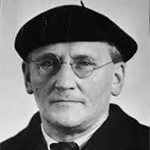 1950 – Hermann Scherchen (1881-1966) – Wiener Symphoniker – Live
1950 – Hermann Scherchen (1881-1966) – Wiener Symphoniker – Live
Rather good sound, slow tempo, maybe too much at “Etwas weniger langsam, aber immer sehr gemessen” (“Slightly slower, but always very measured”). It sounds ‘narrow’, rather bad tones. 6
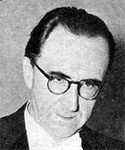 1953 – Hans Rosbaud (1895-1962) – RIAS Sinfonie Orchester – Live
1953 – Hans Rosbaud (1895-1962) – RIAS Sinfonie Orchester – Live
Not the best sound or the best orchestra either. More vivid. Strange placid passages and animated ones. 6.5
1953 – Hermann Scherchen- Wiener Staatsopernorchester
Slightly better than in 1950, very vertical. In his youth, Kubelík confessed to Erich Kleiber he had problems conducting Mahler 7: “Just breathe!” 6.5
1957 – Hans Rosbaud – Sudwestdeutschenrundfunk Sinfonie Orchester, Baden Baden – Live
Orchestras were just learning their Mahler by the time, banned by the Nazis, then WW2, only Walter and Klemperer had some insight to bring to them. Rather good sound for a concert at that time. Some beautiful passages, audition rather tiresome though. 7
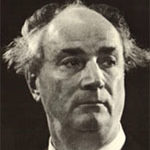 1961 – Rafael Kubelík (1914-1996) – Koln – Live
1961 – Rafael Kubelík (1914-1996) – Koln – Live
Kubelík conducted around ten times this symphony. Not the best orchestra again, but much better than the previous ones. Animation, a moving lecture – makes me think about M 9’s third movement. Once put on the turntable you just stick to it. 8
I should put it on YT.
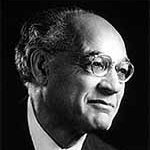 1964 – Maurice Abravanel (1903-1993) – Utah Symphony Orchestra
1964 – Maurice Abravanel (1903-1993) – Utah Symphony Orchestra
A rather slow tempo. Lacks of rhythm, tension fades away often. Rather good lecture though. 7
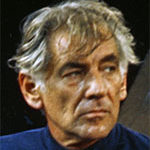 1965 – Leonard Bernstein (1918-1990) – New York Philharmonic
1965 – Leonard Bernstein (1918-1990) – New York Philharmonic
Beautiful phrasing at the beginning, beautiful orchestral tones also, Animated, a little exterior maybe. 8
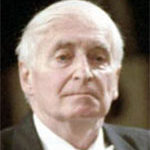 1968 – Vaclav Neumann (1920-1995) – Gewandhaus Orchester Leipzig
1968 – Vaclav Neumann (1920-1995) – Gewandhaus Orchester Leipzig
A little heavy, but animate though, sounds like a more metronomic Kubelik. Very good orchestra. 8
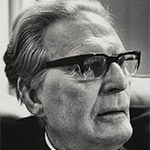 1968 – Otto Klemperer (1885-1973) – New Philharmonia Orchestra
1968 – Otto Klemperer (1885-1973) – New Philharmonia Orchestra
Very very slow. but impressive and vivid though, it’s like a maelstrom. Superb orchestra. 8.5
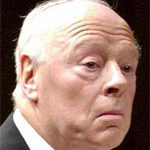 1969 – Bernard Haitink – Koninklijk Concertgebouworkest, Amsterdam
1969 – Bernard Haitink – Koninklijk Concertgebouworkest, Amsterdam
Haitink is now retired – a very good conductor: each time you follow the score listening to one of his interpretations, every notation is respected. It sounds sometimes too much but there are superb atmospheres. And what an orchestra! 8
1970 – Rafael Kubelík – Symphonie-Orchester des Bayerischen Rundfunks
I’m sorry to say it again, this is my Mahler… Such characterization, insight, colors, atmosphere, strings so refined – both earth and sky… I think the Japanese reissue “SHMCD” gives more focus on the instruments. 8.5
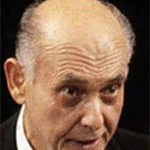 1971 – Georg Solti (1912-1997) – Chicago Symphony Orchestra
1971 – Georg Solti (1912-1997) – Chicago Symphony Orchestra
Superb orchestra, brass always a little extrovert, square conducting, sounds sometimes like a military march, beautiful but exterior. 7.5
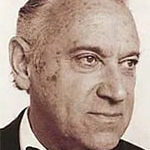 1975 – Kirill Kondrachine (1914-1981) – Leningrad Philharmonic Orchestra
1975 – Kirill Kondrachine (1914-1981) – Leningrad Philharmonic Orchestra
Slower tempo, which causes difficulties for some instrumentalists. Sounds more like a score lecture than a deeply felt interpretation. Interesting though. 7.5
1976 – Rafael Kubelík – Symphonie-Orchester des Bayerischen Rundfunks – Live
Most of Mahler / Kubelik concerts edited by Audite where sorts of rehearsals before the studio recording. This is not the case for this one. This sounds so ‘natural’ – very good recording which captured the rather dry sound of the Herkule Saal. Curiously we have a little bit less drive than the studio recording, but it’s getting better by the en of the movement. 8
1978 – Vaclav Neumann – Ceska Filharmonie
A little slow and heavy, beautiful tones though, recalls Kubelík again, a little static but characterized. 8
1981 – Rafael Kubelík – New York Philharmonic – Live
Much slower than the two previous ones (Langsam). Less animation but more weight. Some balance problems in some passages, but it’s really an experience, like a Mahlerian shaman… 8.5
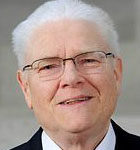 1982 – Hans Zender (1936-2019) – Rundfunk-Sinfonie Orchester Saarbrücken – Live
1982 – Hans Zender (1936-2019) – Rundfunk-Sinfonie Orchester Saarbrücken – Live
This conductor just died. A little less slower than the previous Kubelík. Some passages rather dull, others with a certain wit. All together it is lacking of tension. 7
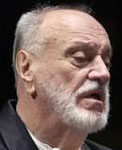 1982 – Kurt Masur (1927-2015) – Gewandhaus Orchester, Leipzig
1982 – Kurt Masur (1927-2015) – Gewandhaus Orchester, Leipzig
He has never been known as a great Mahler interpreter. Weak tones at the orchestra, sound like a good lecture of the score. 6.5
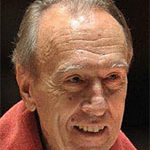 1984 – Claudio Abbado (1933-2014) – Chicago Symphony Orchestra
1984 – Claudio Abbado (1933-2014) – Chicago Symphony Orchestra
Beautiful tones, but lacking of pattern (?), beautiful dynamics; rather running on empty. 7.5
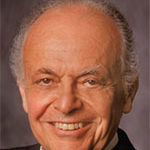 1984 – Lorin Maazel (1930-2014) – Wiener Philharmoniker – Live
1984 – Lorin Maazel (1930-2014) – Wiener Philharmoniker – Live
An other slow lecture, beautiful beginning but you get bored very quickly? Even the Nicht schleppen doesn’t really works. 6.5
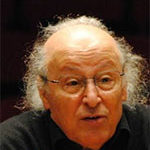 1986 – Eliahu Inbal (1936*) – Radio Sinfonie Orchester Frankfurt
1986 – Eliahu Inbal (1936*) – Radio Sinfonie Orchester Frankfurt
In France, Henri-Louis de la Grange, the famous Mahlerian author, kept giving in the Diapason magazine the best note to all Mahler’s Inbal recordings in this serie. The same one who treated once Kubelík as a Kapellmeister… It recalls me in my youth a freind of my defunct uncle, when I wanted him to play a recording of Mahler by Kub saying in a sarcastic way “ah ah let’s listen to a Mahler’s romantic tradition”, which is non sense. I consider Inbal as a very good conductor, but his interpretation here is rather pale and lacks of nerve. 7
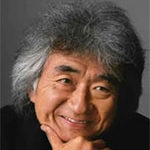 1989 – Seiji Ozawa (1935*) – Boston Symphony Orchestra
1989 – Seiji Ozawa (1935*) – Boston Symphony Orchestra
Beautiful tones at the beginning, accents, homogeneity, maybe the best sounding version yet, a little film music sometimes. 8
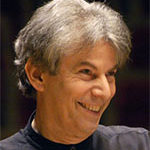 1989 – Hartmut Haenchen (1943*) – Nederlands Philharmonisch Orkest – Live
1989 – Hartmut Haenchen (1943*) – Nederlands Philharmonisch Orkest – Live
Another very slow tempo. Rather weak brass, orchestra a little far away, lacks of presence in sound and interpretation. 6.5
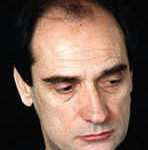 1989 – Emil Tabakov (1947*) – Sofia Philharmonic Orchestra
1989 – Emil Tabakov (1947*) – Sofia Philharmonic Orchestra
I have been disappointed by his M 1 & 9. Rather rude tones, but some animation, beautiful atmospheres and gestures. I’ll keep it. 8
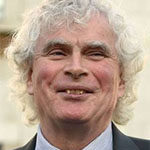 1991 – Simon Rattle (1955*) – City of Birminham Symphony Orchestra – Live
1991 – Simon Rattle (1955*) – City of Birminham Symphony Orchestra – Live
Strings emphasized, not the best players (brass), rather exterior and lacking of pulse. 7
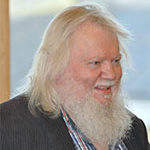 1991 – Leif Segerstam (1944*) – Dansk Radiosymfoniorkestret
1991 – Leif Segerstam (1944*) – Dansk Radiosymfoniorkestret
Superb animation, a little decorative sometimes, judicious tempi, vivid. 8
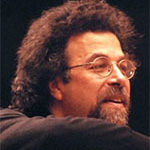 1992 – Giuseppe Sinopoli (1946-2001) – Philharmonia Orchestra
1992 – Giuseppe Sinopoli (1946-2001) – Philharmonia Orchestra
Slow tempo again. Harsh phrasings, a very personal, lively, colorful and interesting lecture and a very good orchestra. 8
1992 – Bernard Haitink – Berliner Philharmoniker
Wonderful orchestra (strings) maybe too much! Good tempi, music breathes a little cold maybe. 8
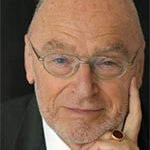 1993 – Michael Gielen (1927-2019) – Sudwestdeutschenrundfunk Sinfonie Orchester, Baden Baden
1993 – Michael Gielen (1927-2019) – Sudwestdeutschenrundfunk Sinfonie Orchester, Baden Baden
Detailed strings at the beginning (as for Solti), good general pace, a little static though. 7.5
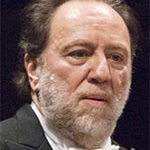 1994 – Riccardo Chailly (1953*) – Koninklijk Concertgebouworkest Amsterdam
1994 – Riccardo Chailly (1953*) – Koninklijk Concertgebouworkest Amsterdam
Very slow as Kubelík in NY, but more static at the beginning, a little cold. 7.5
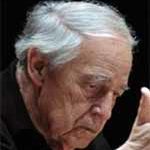 1994 – Pierre Boulez (1925-2016) – Cleveland Orchestra
1994 – Pierre Boulez (1925-2016) – Cleveland Orchestra
Slow tempo. The only French conductor in this survey by the way. Everything is so well played but kind of boring at the same time. 7
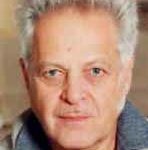 1994 – Michel Halasz (1938*) – Narodowa Orkiestra Symfoniczna Polskiego Radia (National Polish Radio Symphony Orchestra)
1994 – Michel Halasz (1938*) – Narodowa Orkiestra Symfoniczna Polskiego Radia (National Polish Radio Symphony Orchestra)
The image is very narrow, it lacks of accents. 6.5
 1997 – Michael Tilson-Thomas (1944*) – London Symphony Orchestra
1997 – Michael Tilson-Thomas (1944*) – London Symphony Orchestra
Strings a little pale, animated but kind of nervous. 7.5
 1998 – Ken-Ichiro Kobayashi (1940*) – Ceska Filharmonie
1998 – Ken-Ichiro Kobayashi (1940*) – Ceska Filharmonie
Our preferred Japanese conductor in Mahler (another one in Tokyo exists but I couldn’t access to it). Fluidity, accents, drive, one that breathes and knows how to handle musical pace. Typical czech brass sound. 8.5 Here he is in M2.
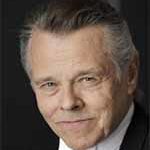 2000 – Mariss Jansons (1943-2019) – Oslo Filharmoniske Orkester – Live
2000 – Mariss Jansons (1943-2019) – Oslo Filharmoniske Orkester – Live
Slow tempo, maybe lacking of accents (strings), beginning sounds inexorable, placid but consistent. 8
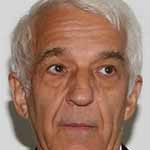 2000 – Vladimir Ashkenazy (1937*) – Ceska Filharmonie – Live
2000 – Vladimir Ashkenazy (1937*) – Ceska Filharmonie – Live
A very flat interpretation, the worst so far. 5
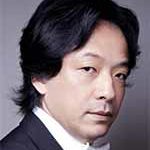 2003 – Ryusuke Nimajiri (1964*) – Tokyo Philharmonic Orchestra – Live
2003 – Ryusuke Nimajiri (1964*) – Tokyo Philharmonic Orchestra – Live
Slow tempo, but not very inhabited. 6
2005 – Michael Tilson-Thomas – San Francisco Symphony – Live
Ongoing tempo. Animated, beautiful balances, strings a little pale sometimes, lacking of some vibrato. 7.5
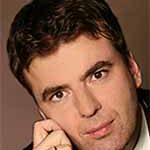 2007 – Gabriel Feltz (1971*) – Stuttgarter Philharmoniker – Live
2007 – Gabriel Feltz (1971*) – Stuttgarter Philharmoniker – Live
A young conductor who has done a lot of recordings already, with a complete Mahler set. Rather distant, muffled sound and lacks of animation. 6
2007 – Mariss Jansons – Symphonieorchester des Bayerischen Rundfunks – Live
Jansons with Kubelík’s orchestra. It has changed a lot since: more virtuoso, a little massive too. Not a very good take, a little dull. As usual, a very good conducting, clean and… a little boring. 7.5
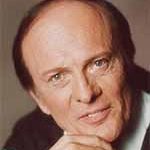 2007 – Zdenek Macal (1936*) – Ceska Filharmonie
2007 – Zdenek Macal (1936*) – Ceska Filharmonie
and other take with the Czech Philharmonic. Macal did a complete Mahler for Exton. This one was edited on two CDs (!). Again this fruity color from the orchestra, not in a very good shape. Good balances, a little bit placid. 7.5
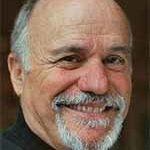 2008 – David Zinman (1936*) – Tonhalle Orchester Zürich
2008 – David Zinman (1936*) – Tonhalle Orchester Zürich
Very good conducting for a rather light lecture. 7.5
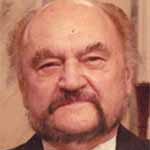 2008 – Jirí Starek (1928-2011) – Czech Radio Symphony Orchestra – Live
2008 – Jirí Starek (1928-2011) – Czech Radio Symphony Orchestra – Live
This unknown conductor here had been a pupil of Václav Talich and Karel Ančerl.
Very tight conducting. Interesting moments, but a rather fragmented lecture and the orchestra’s level is very low. 6.5
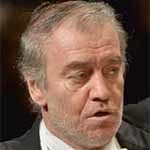 2008 – Valery Gergiev (1953*) – London Symphony Orchestra – Live
2008 – Valery Gergiev (1953*) – London Symphony Orchestra – Live
Beginning lacks of tension. But later on also… Annoying. 6.5
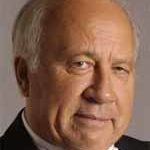 2009 – Neeme Järvi (1937*) – Residentie Orkest Den Haag
2009 – Neeme Järvi (1937*) – Residentie Orkest Den Haag
Distant sound, foggy lecture, no dynamics. 6
2011 – Eliahu Inbal – Ceska Filharmonie – Live
Again an Exton album with the Czech Philharmonic on two Cds. Rather distant sound, a good lecture lacking of tension. 7
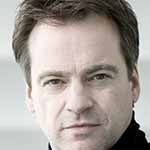 2011 – Jonathan Nott (1962*) – Bamberger Symphoniker
2011 – Jonathan Nott (1962*) – Bamberger Symphoniker
Slow tempo, slower at 2′. It’s not really inhabited. 7
2011 – Vladimir Ashkenazy – Sydney Symphony Orchestra – Live
Much better than his previous concert in Prague. A good continuity, not gripping though. 7.5
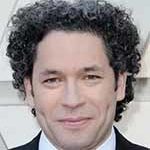 2012 – Gustavo Dudamel (1981*) – Orquesta Sinfonica Simon Bolivar – Live
2012 – Gustavo Dudamel (1981*) – Orquesta Sinfonica Simon Bolivar – Live
A good lecture, linear, rather good orchestra, not very interesting. 7
 2012 – Markus Stenz (1965*) – Gûrzenich Orchester Köln
2012 – Markus Stenz (1965*) – Gûrzenich Orchester Köln
Good conducting, sounds kind of film music. Rather cold sound. 7
2013 – Eliahu Inbal – Tokyo Metropolitan Symphony Orchestra – Live
An Exton again, this time on one CD. Another good reading, not exhilarating. 7
 2016 – Adam Fischer (1949*) – Duesseldorfer Symphoniker
2016 – Adam Fischer (1949*) – Duesseldorfer Symphoniker
He recorded all Mahler symphonies in Düsseldorf. Very good atmospheres all along, details, bu the music flows. One of the versions I listened to the end. 8
 2016 – Bernardo Kuznetsov – The St Petra Russian Symphony Orchestra
2016 – Bernardo Kuznetsov – The St Petra Russian Symphony Orchestra
Published under “UN Classical Worlds” unknown orchestra, unknown conductor – a rebirth of Alfred Scholz? Very distant sound. It’s not bad anyway, looks like a pirated concert though no public noises. A rather good version, with drive, and some wit. 7
 2016 – Peter Stangel (19??*) – Die Taschenphilharmonie
2016 – Peter Stangel (19??*) – Die Taschenphilharmonie
Chamber orchestra founded in Munich by Peter Stangel. Its slogan: “Smallest Symphony Orchestra in the World“… It sounds weird, skinny, not very interesting. 6.5
 2017 – Alan Gilbert (1967*) – New York Philharmonic – Live
2017 – Alan Gilbert (1967*) – New York Philharmonic – Live
Very good beginning, then it is getting a little humdrum. 7.5
2017 – Mariss Jansons – Koninklijk Concertgebouworkest Amsterdam – Live
Wonderful horn. More commitment than in Munich. Splendid orchestra of course. 8
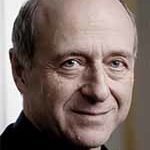 2019 – Iván Fischer (1951*) – Budapest Festival Orchestra
2019 – Iván Fischer (1951*) – Budapest Festival Orchestra
Beginning a little bit pastoral, sounds like he is paying more attention to articulations than to the content. Good lecture and I’ll keep it. 8
So I will keep 19 versions for the other movements {2/2]:
| 1961 | Rafael Kubelik |
| 1965 | Leonard Bernstein |
| 1968 | Otto Klemperer |
| 1968 | Vaclav Neumann |
| 1969 | Bernard Haitink |
| 1970 | Rafael Kubelik |
| 1976 | Rafael Kubelik |
| 1978 | Vaclav Neumann |
| 1981 | Rafael Kubelik |
| 1989 | Emil Tabakov |
| 1989 | Seiji Ozawa |
| 1991 | Leif Segerstam |
| 1992 | Bernard Haitink |
| 1992 | Giuseppe Sinopoli |
| 1998 | Ken-Ichiro Kobayashi |
| 2000 | Mariss Jansons |
| 2016 | Adam Fischer |
| 2017 | Mariss Jansons |
| 2019 | Iván Fischer |









Very interesting analysis! thanks.